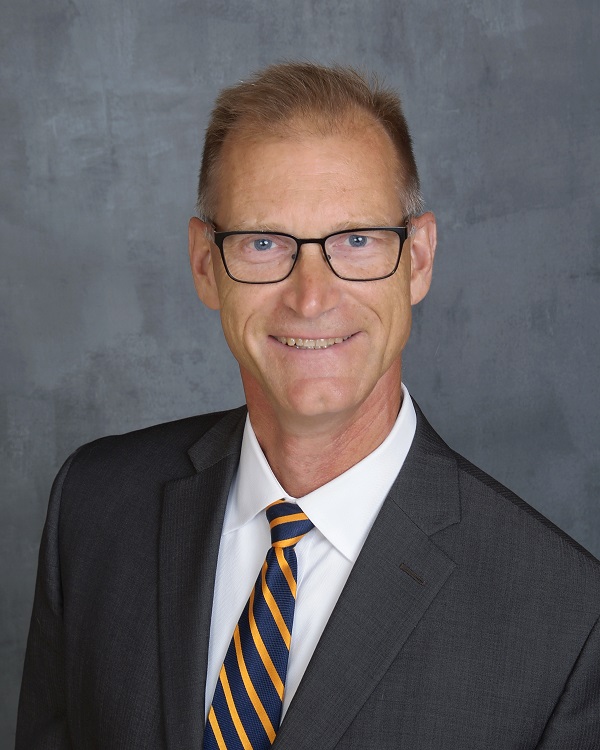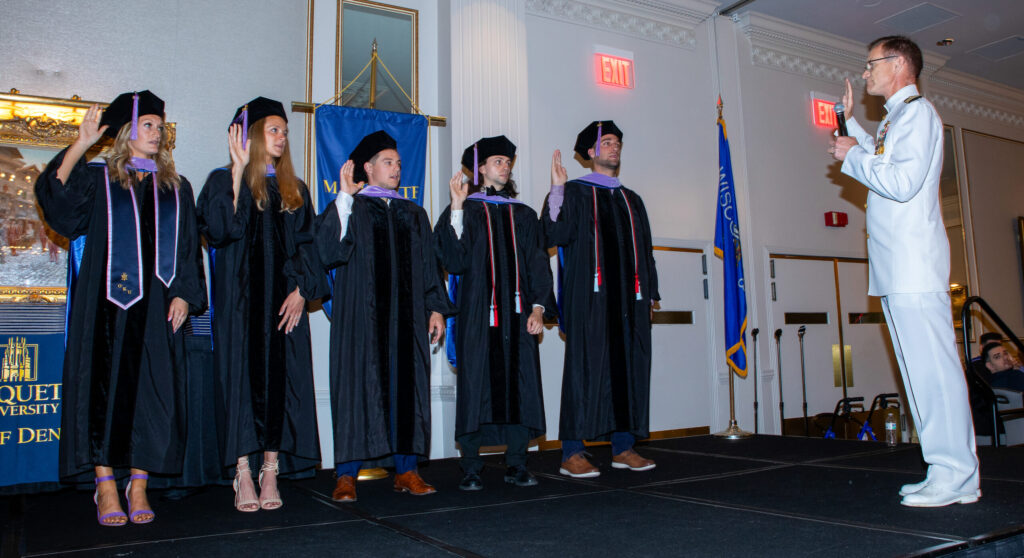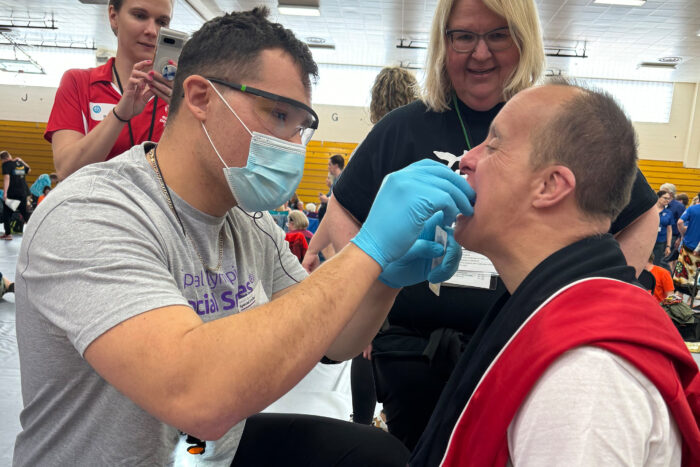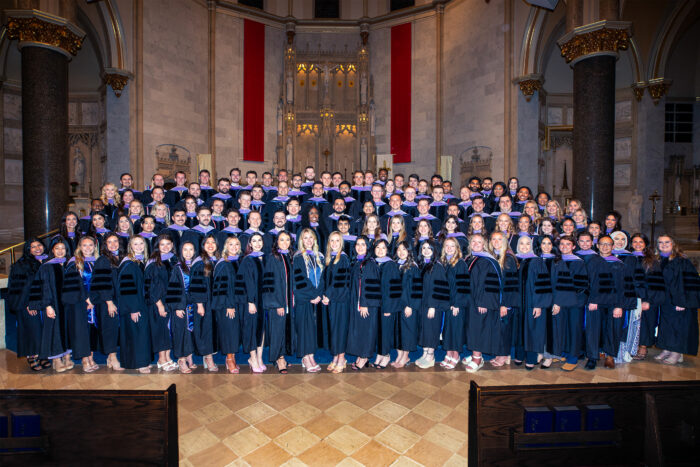
The Department of General Dental Sciences in Marquette University School of Dentistry is responsible for the majority of the basic, applied and clinical sciences components of the pre-doctoral curriculum. Put simply, it’s the largest of the school’s four departments, with the most faculty and staff.
When it came to finding a new leader for the department, Dr. Brian Hodgson was up for the task.
Hodgson was named department chair of General Dental Sciences on May 1, the culmination of more than 30 years of general dentistry practice that began as an undergraduate and dental student at Marquette. A retired Navy Dental Corps captain who specializes in pediatric and special needs dentistry, Hodgson’s work and leadership has spanned the globe.
Here in a Q&A, Hodgson reflects on those experiences and explains why he’s equipped to lead faculty and the next generation of dentists.
This interview has been edited for length and clarity.
Much of your professional career has been uniquely intertwined between pediatric dentistry and military service. How do you believe they relate?
The men and women we send to physically enforce our foreign policy come from a huge variety of backgrounds, but many of them are from somewhat disadvantaged or lower income situations. Many join the military at a young age as a way to get out of that socioeconomic status and learn skills that can be applicable when they get out. And for me, it’s been a terrific honor that my nation has trusted me to provide good quality care to lead them. Being a pediatric dentist and having my own children, the trust that a parent puts in me to safely provide good quality care to their kids is very similar to the trust that my nation put in me to take care of their youth. So, in that way, that ethical duty and an appreciation for the level of trust that is bestowed on me — either by the parents of my patients or my nation — I think is extremely similar.
What drew you to pediatrics in the first place?
They’re just a happy group of people. Having been able to travel to multiple areas providing care with the Navy, kids are universally happy everywhere. Whether they’re playing in a gutter or playing in a very posh playground, they’re able to have fun. And by working with children, it allows me to have some insight into that world that I’ve long outgrown. So, I love working with kids and helping, ideally, to develop a patient that has an appreciation for dental health and will hopefully become a patient over the years who will continue to seek care as an adult.
So, you were working with children and families when you were serving in the Navy?
I was usually doing general dentistry. But I was stationed in Guantanamo Bay, Cuba. At the time — and still today — service members could bring their families, so there was a robust community on the base. And when I got to that clinic and said I was interested in pediatrics, everybody’s like, ‘alright, fine, you see all the kids.’
Where else have you been stationed?
When I was on active duty, it was just Mayport, Florida, and Guantanamo Bay. But then when I joined the Reserves, they had a number of humanitarian exercises. I’ve been to Alaska three times, where they’d helicopter us out to these extremely remote villages that don’t have doctors or dentists, and we would set up our dental clinic and provide care to the locals for about 10 days. Did the same thing down in Texas two times. And again, as a pediatric specialist, they always asked me to see a lot of the kids while the general dentist saw the adults. Then in 2009, I was recalled to active duty and there were two of us dentists for a Marine Corps unit that was in Iraq.
With Commencement ceremonies just a few weeks ago, you volunteered to administer the promotion oath to five graduates moving on to serve in the military, as you did when you graduated from here. What does that responsibility mean to you?
There is no greater pleasure in my military career than either presenting an award or promoting someone. It’s a really nice ceremony at the start of our graduation where I administer the oath of office for them in front of friends and family to really drive home the commitment that they’re making to their nation. I love doing it.

After the various assignments and roles throughout your career, including a time owning a private practice, you’ve stayed committed to being an educator. What is it about education, and the Dental School in particular, that keeps drawing you to it?
I grew up at Marquette. I did my undergrad here, coming from a small town in Florida. The philosophy and theology and liberal arts that I took as courses, but also lived as a resident in the inner city, helped shape who I am. I have a great appreciation for Marquette for taking a chance on me and educating me. Marquette trained me both clinically to do good dentistry, but also from the social aspect of what it means to be a true Christian, serving others.
Are those lessons that you hope to instill in the faculty and staff you now oversee as department chair?
Correct. I want our faculty to be good role models for our students. We need to be an image for them to mirror as future dentists. Students and faculty alike may get frustrated in the clinic, but it’s about working through the issues. Patients will come in after they miss an appointment or can’t make a payment, but each one of them is a unique human being who needs care, and we should not be here to judge. Our job is to understand the condition and now work to improve that condition for them.
One of the units within your department is the Innovation Center. What does it mean for Marquette School of Dentistry to be invested in technologies for current and future dentists?
I started dental school more than 40 years ago, and the thought of being able to digitally scan a tooth or a mouth was unheard of. We’re now able to scan with extreme precision — to a fraction of a millimeter — and create a blank and mill it, or 3D print the materials. It’s super exciting to have that equipment here in the school and be able to demonstrate to our students how to use it. We have an obligation to train our students for their future practice, and the technology we’ve invested in is what our students are going to be involved in over their next 40-year careers.

